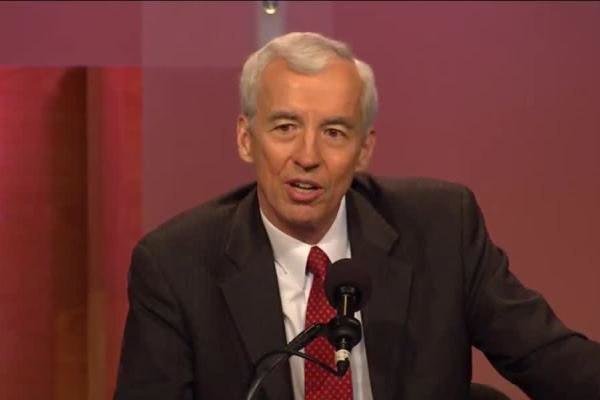Iran will not accept giving up its own missile program: ex-senior CIA official

TEHRAN – Professor Paul Pillar, who was CIA intelligence analyst for 28 years, tells the Tehran Times that “Iran will not accept giving up its own missile program when other states in the region have ballistic missiles and in some cases air forces that are superior to that of Iran.”
Pillar also says, “Iranians also remember being the target of Iraqi missiles during the Iran-Iraq War. Ballistic missiles are indeed a separate issue from nuclear weapons.”
“For many states, including ones that have nuclear weapons, ballistic missiles serve a variety of strategic purposes that have nothing to do with nuclear weapons,” Pillar tells the Tehran Times.
Following is the text of the interview:
Q: U.S. President Donald Trump approved the Iran nuclear deal only one more time before abandoning it if it is not changed. What are the changes that Trump emphasize on them?
A: In his recent statement, President Trump mentioned four areas in which he wants changes. He mentioned them, however, in connection with new legislation that he would like the U.S. Congress to enact. Congress cannot by itself change an international agreement that already is in force, so any such legislation would not be a change in the nuclear agreement itself. For at least two of the four areas, it might be possible for Congress to enact something that would appear responsive to Trump but would make no practical difference in the JCPOA and how it is implemented. One of those areas concerns inspections. The JCPOA already provides for requested inspections of undeclared sites as well as regular inspections of declared nuclear sites. Another of Trump's demands is for Iran not to be even "close" to being able to make a nuclear weapon. The JCPOA already has moved Iran significantly farther away from that capability than it was before, so it is not clear what this vaguely worded demand really means. The other two areas that Trump mentioned would be harder to deal with: eliminating the "sunset" clauses or expiration dates, and treating ballistic missiles as if they were inseparable from nuclear weapons.
Q: The White House wants a deal with EU signatories to make restrictions on Iran's uranium enrichment permanent. Under the current deal they are set to expire in 2025. Do you think EU will accept this condition? If so, Will Iran accept it?
A: Expiration dates, as well as withdrawal clauses, are standard provisions in arms control agreements. They reflect the fact that governments rarely want to commit themselves forever to something, given the likelihood that relevant circumstances will change in the intervening years. The Europeans realize this, besides realizing more generally that it is infeasible to renegotiate an agreement that was as carefully and laboriously negotiated as the JCPOA. Iran will not accept changes in the time limits; if it were willing to make these enrichment provisions permanent, it would have accepted such a provision when the JCPOA was first negotiated. The whole discussion about these sunset clauses has been misleading about what will happen when the expiration dates are reached. Iran and the other parties will face the same choices that they did when reaching the original bargain that is incorporated in the JCPOA. If they still believe that bargain is in their interests, they will agree to an extension of the JCPOA. If they don't believe that, they will not extend. The fine print in an agreement that had been negotiated a decade earlier will not be what determines how they choose.
Q: Trump also wants Iran's ballistic missile programme to be addressed. Iran frequently has emphasized that ballistic missile is not related to JCPOA and will not negotiated about it. According to this, do you think that this condition meaning the end for JCPOA?
A: Of all Trump's demands, the one involving missiles probably is most likely to become the occasion, or rationale, for his administration to pull out of the JCPOA. Iran will not accept giving up its own missile program when other states in the region have ballistic missiles and in some cases air forces that are superior to that of Iran. Iranians also remember being the target of Iraqi missiles during the Iran-Iraq War. Ballistic missiles are indeed a separate issue from nuclear weapons. For many states, including ones that have nuclear weapons, ballistic missiles serve a variety of strategic purposes that have nothing to do with nuclear weapons.
Leave a Comment